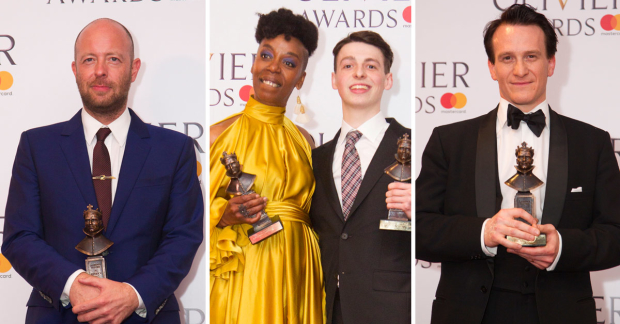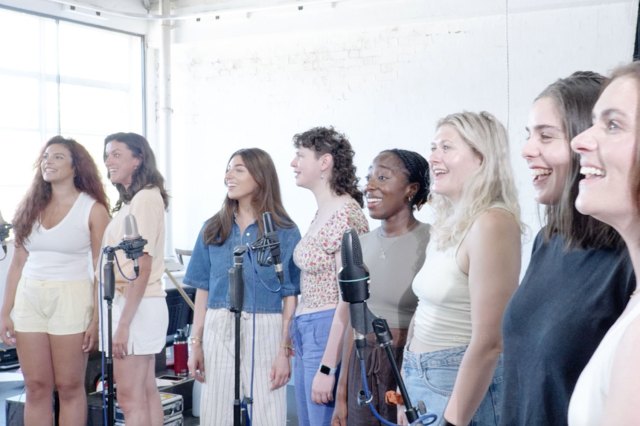Did Harry Potter win a few too many Olivier Awards?
After ”Harry Potter and the Cursed Child” won nine Olivier Awards last night, Matt Trueman asks whether all of them were justified

© Dan Wooller for WhatsOnStage
We might all need a lie down in Madam Pomfrey’s hospital wing after last night’s Olivier Awards – and not just because Harry Potter and the Cursed Child‘s record-breaking success was so breathlessly exciting.
For all that show’s brilliance, for all it’s magic, this was a night on which the theatre industry pulled a Nearly Headless Nick and, well, near lost its head. Harry Potter and the Cursed Child has become the most celebrated show in Oliviers history. In fact, forget Madam Pomfrey’s. Head straight to St Mungo’s.
Don’t get me wrong, Harry Potter and the Cursed Child is flat-out brilliant – one of the best days I’ve ever spent in a theatre. I loved it in its own right and I love it even more for what it might do for theatre long-term. I wouldn’t begrudge it a decent haul in the slightest. When it comes away with almost every prize going, however, it starts to look like critical discernment has flown out the window like so many postal owls.
Put simply: Harry Potter can be brilliant without being absolutely so.
There’s no quibbling with a whole load of its awards. John Tiffany, undoubtedly, deserves Best Director, his second such Olivier. The sweep of the show was sensational. Neil Austin’s lighting was the charm that allowed every single illusion to work its magic. Without his work, there's nothing. Katrina Lindsay’s costumes brought that whole world to life and Anthony Boyle was simply stand-out as Scorpius Malfoy – his humour and heart perfectly pitched. He forged a new fan favourite amongst Potterheads. That's a feat in itself.
Best Entertainment and Family was invented for a show like Harry Potter
Others I’m less sure about. As Potter Senior, Jamie Parker led the ensemble from the front, but I’m not convinced his performance has the heft to join the ranks of Antony Sher’s Richard III or Nigel Hawthorne’s George III, even in an underpowered year for male actors. Noma Dumezweni, too, is a towering figure in British theatre – an actor who carries herself with grace, humility and huge generosity – but her Hermione was a job well done, not a pinnacle of great acting. Kate O’Flynn was, I’d say, robbed. The vulnerability she showed in The Glass Menagerie was virtuosic.
Then there’s Best New Play. Even taking the unevenness of that category into account, that particular Potter win looks a little misplaced. Harry Potter and the Cursed Child now sits alongside some of the greatest pieces of theatre literature ever written: Harold Pinter’s Betrayal, David Mamet’s Glengarry Glen Ross, Tom Stoppard’s Arcadia. Yes, as a huge Annie Baker fan, I’m bitter. The Flick would have fitted right in – writing so human that it seems alive even on the page. Harry Potter, if we're honest, gets a bit plotty in the second half. Words aren't where its power really lies. I'm not even sure it counts as Jack Thorne's best play.
Theatre is at its best when at its most collaborative; Harry Potter included
Besides, there’s an Olivier Award tailormade for Harry Potter. Best Entertainment and Family was invented for a show like this. That it ended up nominated for Best New Play is, in no uncertain terms, a category mistake.
In the end, though, it's probably good value for that record – and the record was in the bag before the interval. There are two things beneath last night's Pottermania and both are worth celebrating.
One is that this was a measure of what collaborative theatremaking looks like. When a team is as tight-knit as the Harry Potter crew, when every element of a production combines to make a brilliant piece of theatre, it reveals individual awards as the ridiculous things they are. How do you begin to distinguish between different elements of a design that works so well because it’s in sync? How do you separate writing from direction from performances in a show built up in the rehearsal room? Just look at how many of the biggest Olivier winners have been ensemble shows: Curious Incident, Nicholas Nickleby, Black Watch and Jerry Springer. Theatre is at its best when at its most collaborative; Harry Potter included.
The other is that this was a case of the Society of London Theatre paying genuflection to a game-changing production. Its voting members, most of them commercial producers themselves, have bowed down before an almighty feat of commercial producing. Not only have they hailed one of the biggest hits in British theatre history, they have paid their dues to a show that has done them all a favour. Harry Potter has raised the profile of live theatre in this country and brought new audiences to the West End. A good haul of gongs was never going to be enough. Harry Potter and the Cursed Child has cast a spell over us all.
Read the full list of Olivier Award winners here













